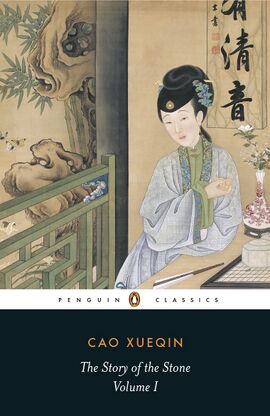Dream of the Red Chamber
- What is it?
An 18th-century saga by Cao Xueqin about a noble family that falls from grace. The most recent of China’s four classics, written in the 1750s, the novel focuses on life in two branches of the wealthy, aristocratic Jia clan, particularly the dashing male heir Jia Baoyu, who was supposedly born with a piece of jade in his mouth.
- Why is it important?
Packed with fascinating detail of China’s social and cultural life at the time, the oft-satirical book is twice as long as "War and Peace" and is often considered a Chinese novel. It is also politically important; aside from being a portrait of 18th-century power struggles, Chairman Mao claimed to have read all five volumes of Dream of the Red Chamber five times. A must-read for anyone interested in China’s enormously complex social structures, family roles, and Confucian traditions.
- What else?
The author’s life mirrored that of his characters; while Cao’s grandfather was an important civil servant to Emperor Kangxi, his father’s fall from grace meant Cao grew up out of favor. He ended up drinking too much, sleeping in barns, and writing Dream of the Red Chamber in chapters, often circulated among friends in exchange for food and wine. Cao died in 1763, and his work wasn’t published as one novel until 1791 – it has been speculated that more chapters exist, spirited away by the eminent people referenced in the text.
- About the Author
Cao Xueqin (1715-63) was born into a family which for three generations held the office of Commissioner of Imperial Textiles in Nanking, a family so wealthy they were able to entertain the Emperor four times. However, calamity overtook them and their property was confiscated. Cao Xueqin was living in poverty when he wrote his famous novel The Story of the Stone.
- Amazon review
“Filled with classical allusions, multilayered wordplay, and delightful poetry, Cao’s novel is a testament to what Chinese literature was capable of. Readers of English are fortunate to have David Hawkes and John Minford’s The Story of the Stone, which distills a lifetime of scholarship and reading into what is probably the finest work of Chinese-to-English literary translation yet produced. You will be rewarded every bit of attention you give it, many times over.
Chat rooms • What links here • Copyright info • Contact information • Category:Root
